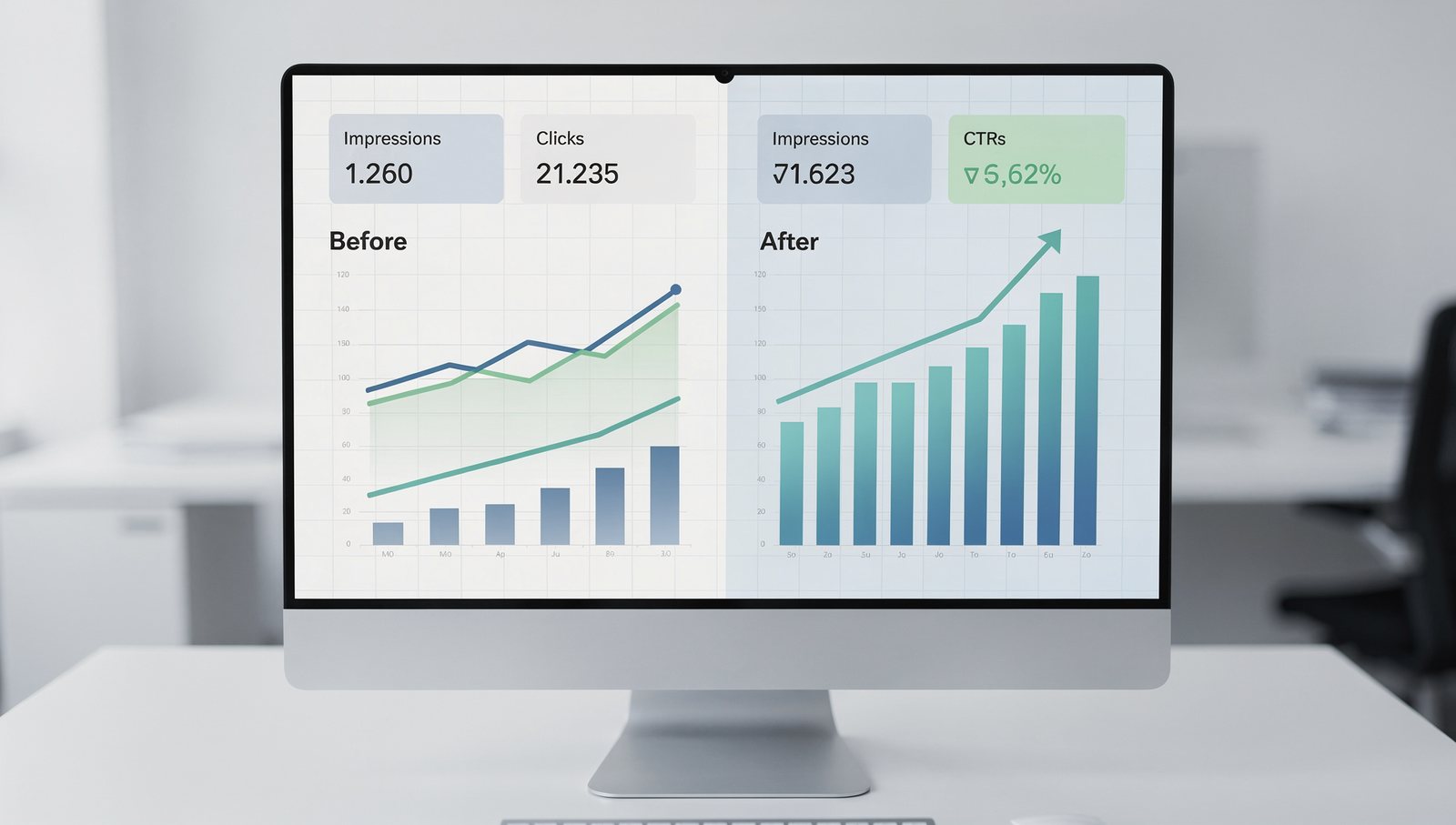7 Ways Realtors Use Landing Pages and Websites to Win Clients
Learn how landing pages and websites actually help realtors gain an average of 2 extra closings per year. Watch the video to learn how to 10X those numbers.
Want More Clients Fast?
Steal This Website Rescue Kit to Get More Clients, More Calls, and More Sales on Autopilot
In the world of online real estate marketing, there’s a quiet debate going on…and it’s more important than most agents realize.
Should you focus on a landing page or build a full real estate website?
If you’ve ever asked yourself that question, this post is for you. Because the right choice doesn’t just make your online presence prettier. It affects how many leads you capture, how many deals you close, and how seriously potential clients take you.
Let’s break it down like a passionate real estate tech nerd who really wants you to succeed.
What Is a Landing Page?
A landing page is a single, focused web page designed to drive a specific action. It’s where visitors “land” after clicking on an ad, email, or social post.
In real estate, a landing page might:
Offer a free home value report in exchange for a homeowner’s address and email
Promote a listing, complete with photos, pricing, and a form to schedule a showing
Give away a lead magnet, like a free checklist or neighborhood guide
Landing pages are highly targeted. They’re not built for browsing…they’re built to convert.
Think of them like digital billboards with one big button that says “Click here to become a lead.”
What Is a Real Estate Website?
A real estate website, on the other hand, is your full online hub. It typically includes:
A homepage that introduces your brand
Bio and “About Me” sections to build trust
Listings with IDX search tools
Testimonials and reviews
Blog content that builds authority
Lead capture forms sprinkled throughout
It’s where people learn about you, browse, and eventually make a decision to contact you…sometimes after days or weeks of research.
Your website is like your digital storefront. It says, I’m not just passing through…I run a serious business here.
Key Differences: Landing Page vs Website Real Estate
Let’s compare them side-by-side:
| Feature | Landing Page | Website |
|---|---|---|
| Focus | One specific action | Full business presence |
| Speed to build | Fast | Takes more time |
| Content depth | Minimal | Deep and varied |
| SEO benefit | Limited | Strong if done right |
| Branding | Usually basic | Fully customizable |
| Long-term use | Short-term campaign-based | Long-term lead machine |
| IDX integration | Rare | Expected |
Now let’s explore when to use each, and how they can work together.
When Should Realtors Use a Landing Page?
Landing pages are your secret weapon for quick, laser-targeted campaigns.
Use them when:
You’re running a Facebook or Google Ads campaign to generate seller leads
You want to test a new message or offer quickly
You’re promoting an exclusive listing
You’re offering a lead magnet like a downloadable guide or checklist
A great example: You’re running an ad that says, “Curious what your Harrisburg home is worth in 2025?” The click goes to a home value landing page. It asks for their address, email, and phone…that’s it. No menus. No distractions. Just conversion.
If you want to dive deeper into lead magnets, check out our post on how to capture seller leads with a home value tool. It walks you through setting one up to convert curious browsers into hot seller leads.

When Should Realtors Use a Full Website?
If a landing page is your quick ninja move, a real estate website is your long-term fortress.
Use a full website when:
You want to build your brand authority
You need an IDX-powered property search tool
You want to rank on Google and show up for local real estate searches
You’re building long-term relationships and want to nurture leads through content
Your website is what people will Google after they see your sign, your card, or your Facebook profile. It needs to look and feel like you’re already successful…even if you’re just getting started.
Want to learn how to build that kind of trust? Our post on real estate website conversion tips covers all the strategies top agents use to turn their website traffic into appointments.
How They Work Together (And Why Smart Agents Use Both)
This isn’t an either-or situation. The best agents combine landing pages and full websites to create a seamless funnel.
Here’s what that looks like:
You run a Facebook ad targeting sellers in your city
They click and land on a home value landing page
After submitting their info, they’re redirected to your main website
There, they see your listings, your testimonials, and your contact info
A few days later, they’re back…reading your blog, checking your reviews, and finally reaching out
It’s a full digital journey…one that starts with a click and ends in a signed listing agreement.
Want more inspiration? Our guide on how to turn website traffic into leads shows how to move people from curiosity to conversion using smart design and calls to action.
SEO Implications: Why Websites Win Long-Term
If you care about ranking on Google, landing pages won’t get you there.
Here’s why:
Landing pages are usually not indexed by search engines
They have minimal content (which Google doesn’t love)
They lack backlinks, structured navigation, and regular updates
On the flip side, a full website with city-specific content, IDX listings, and optimized blogs can dominate local search.
Our guide on real estate SEO best practices explains exactly how to structure your site to outrank competitors — including the big platforms like Zillow and Realtor.com.
Common Misconceptions Realtors Have
Let’s clear up a few myths:
Myth: “I just need a landing page. I’m running ads.”
Truth: That might work for one campaign, but without a branded website to back it up, many leads will bounce or never convert.
Myth: “My brokerage website is enough.”
Truth: Your name.brokerage.com subpage isn’t doing you any favors. It’s not built for SEO, it’s not designed to capture leads, and it doesn’t make you stand out.
If you’re still clinging to a brokerage site, read our post on why your website matters more than Zillow in 2025. It’s eye-opening.
What Should You Invest In First?
If your budget is tight or you’re just getting started, prioritize a full branded website first. Then add landing pages as needed for specific campaigns.
That way:
You always have a central place for people to return
You own your content and branding
You’re building long-term SEO value while capturing short-term leads
If you’re not sure how to get started, our free 60-day luxury website trial gives you everything you need to launch your brand online…risk free.
The Bottom Line: Your Website Is Your Digital Home
Landing pages are powerful tools, but they’re not the whole house. Your full website is the foundation that supports your brand, builds trust, and keeps people coming back.
At Digital Dream Homes, we help realtors build both…converting landing pages and luxurious websites that work together to close deals.
From IDX integration to automated follow-up, we make it all easy.
If you’re ready to stand out from the pack and build something that truly generates results, we’d love to help.
Book your free consultation today and see what’s possible when your digital presence is done right.
Matt Pieczarka
Want a Free Website Audit?
Fill out your information below and we will send you a personal screen share video of tips on how to make your actual website better!
Other Posts About Small Business Websites You Might Like…
- Small Business Website Design Tips for Small Business Owners
- How to Create a Professional Website for Your Small Business
- Common Small Business Website Mistakes That Are Costing You Customers
- Best Homepage Layout for Small Businesses
- Website Conversion Tips for Small Business: How to Make Your Website Convert Visitors into Clients
- How to Make Small Business Website Look Professional: Simple Design Tweaks That Boost Small Business Credibility
- Best Website Colors For Small Business Branding: How to Choose the Right Colors for Your Brand
- Why Small Business Websites Fail: Why Your Website Isn’t Bringing in Leads
- Mobile Friendly Website Tips For Small Business: Mobile Optimization Tips for Local Business Websites
- Contact Page Optimization for Small Business: How to Create a “Contact Us” Page That Actually Gets Results
- What is a Listicle and Why Your Website Needs One
Integrative Medicine SEO Consultant 7 Benefits That Get Patients
Integrative Medicine SEO Consultant 7 Benefits That Get Patients Watch the video to learn the best seo strategy to bring in the most website visitors. Works for any industry
7 Holistic Doctor SEO Services That Bring Patients Without Ads
7 Holistic Doctor SEO Services That Bring Patients Without Ads Watch the video to learn the best way to get more people seeing your content and going to your website online.
7 Functional Medicine SEO Specialist Ways to Win More Patients
7 Functional Medicine SEO Specialist Ways to Win More Patients Watch the video to learn how to post content for the best SEO and AIO Want More Clients Fast? Steal This Websi
9 Functional Medicine Local SEO Wins That Fill Your Calendar
9 Functional Medicine Local SEO Wins That Fill Your Calendar Watch the video to learn the best SEO technique to get the most traffic to your website! Want More Clients Fast?
7 Functional Medicine SEO Company Checks That Bring More Patients
7 Functional Medicine SEO Company Checks That Bring More Patients Watch the video to learn how to use your website to get qualified leads and more patients! Works for every
7 Functional Medicine SEO Services That Bring More Patients
7 Functional Medicine SEO Services That Bring More Patients Watch the video to learn how to structure your website for the maximum conversions. Works for every industry! Wan
5 Functional Medicine Website Consulting Tweaks That Get More Patients
5 Functional Medicine Website Consulting Tweaks That Get More Patients Watch the video to learn how to structure your website for the maximum conversions. Works for every industry!
7 Functional Medicine Website Redesign Signs You’re Losing Patients
7 Functional Medicine Website Redesign Signs You’re Losing Patients Watch the video to learn how to structure your website for the maximum conversions. Works for every industry!
7 Functional Medicine Website Support Wins That Grow Your Practice
7 Functional Medicine Website Support Wins That Grow Your Practice Watch the video to learn the exact layout to maximize your lead conversions on your website! Works with any indus









